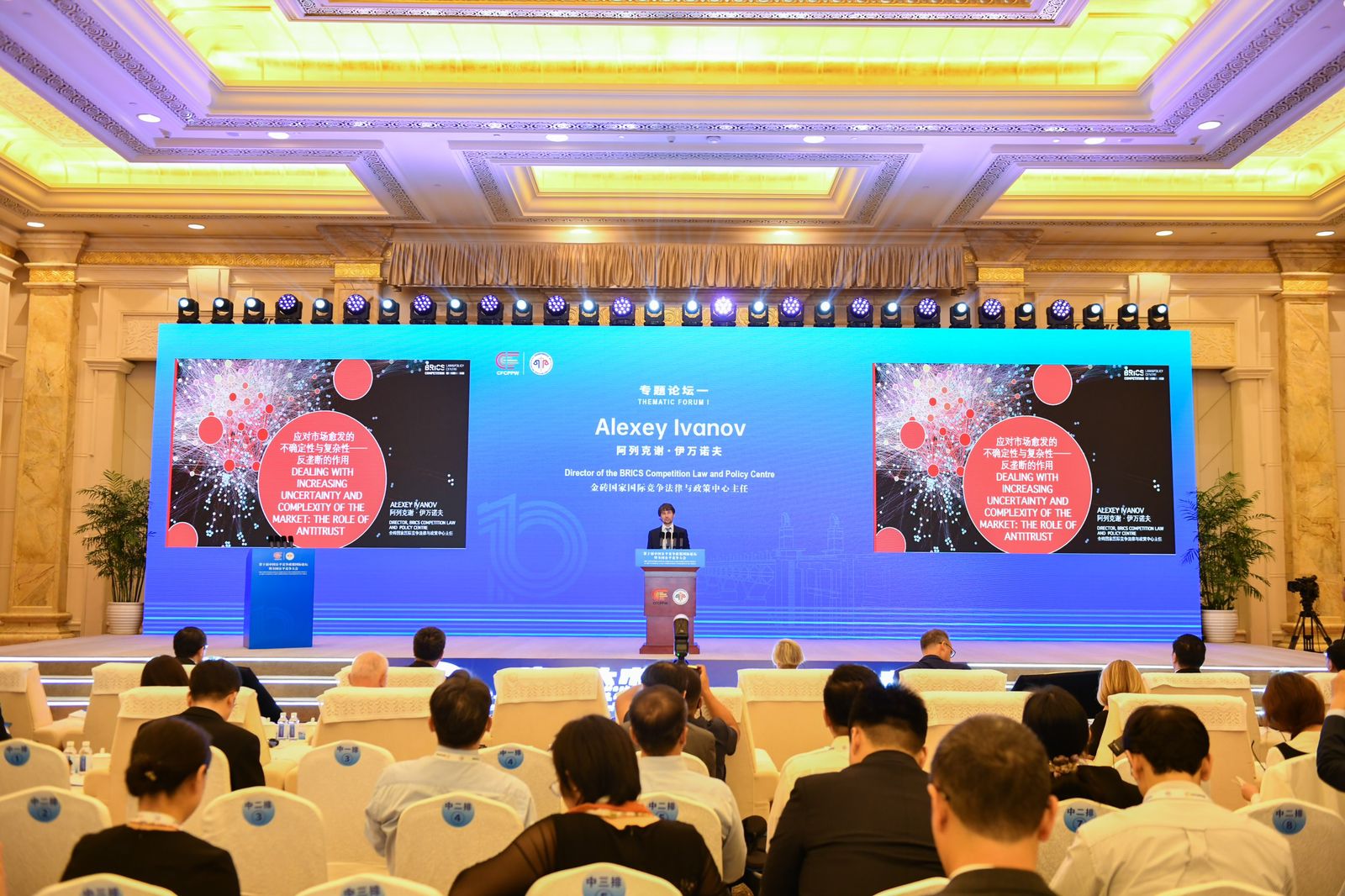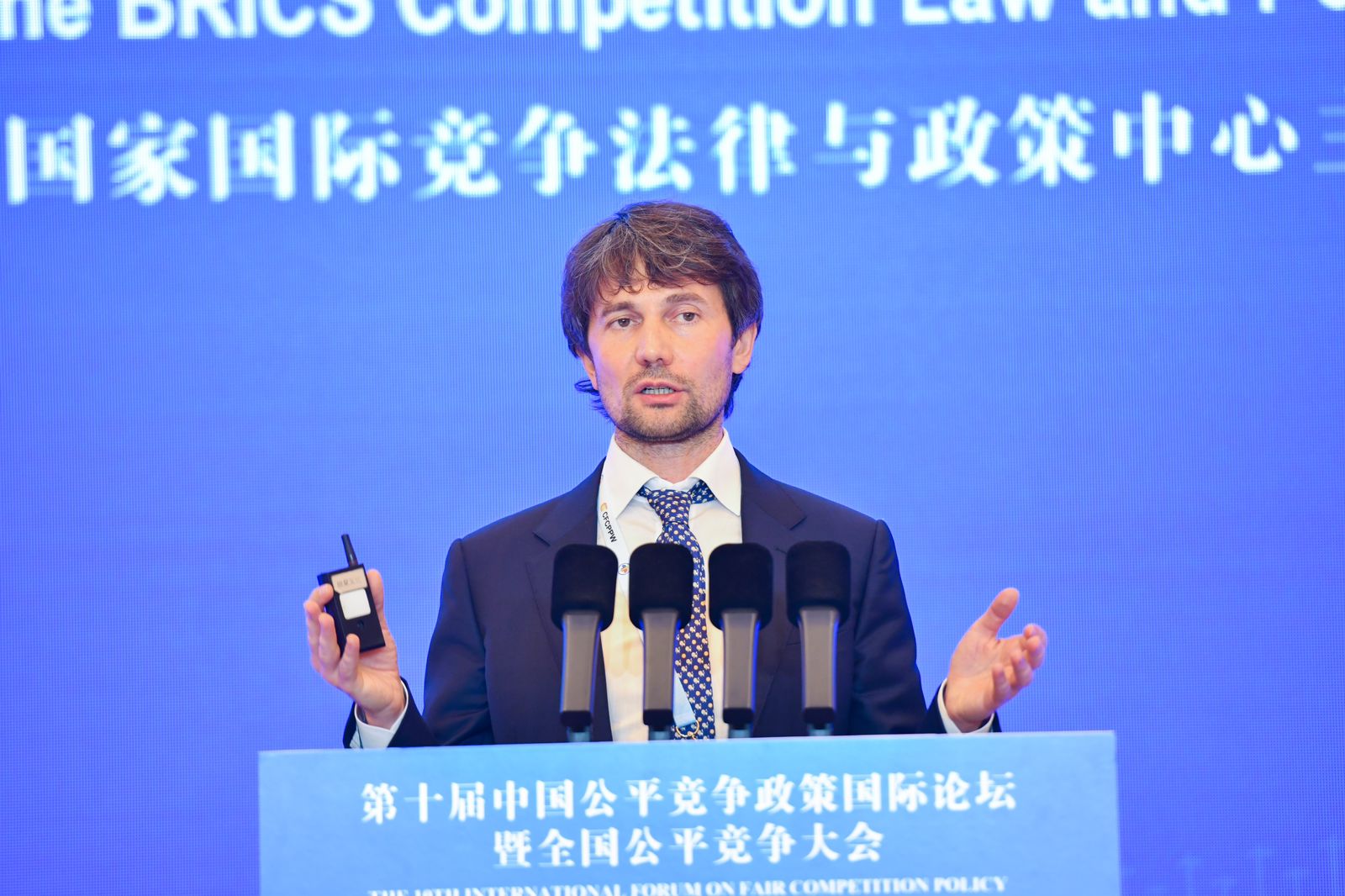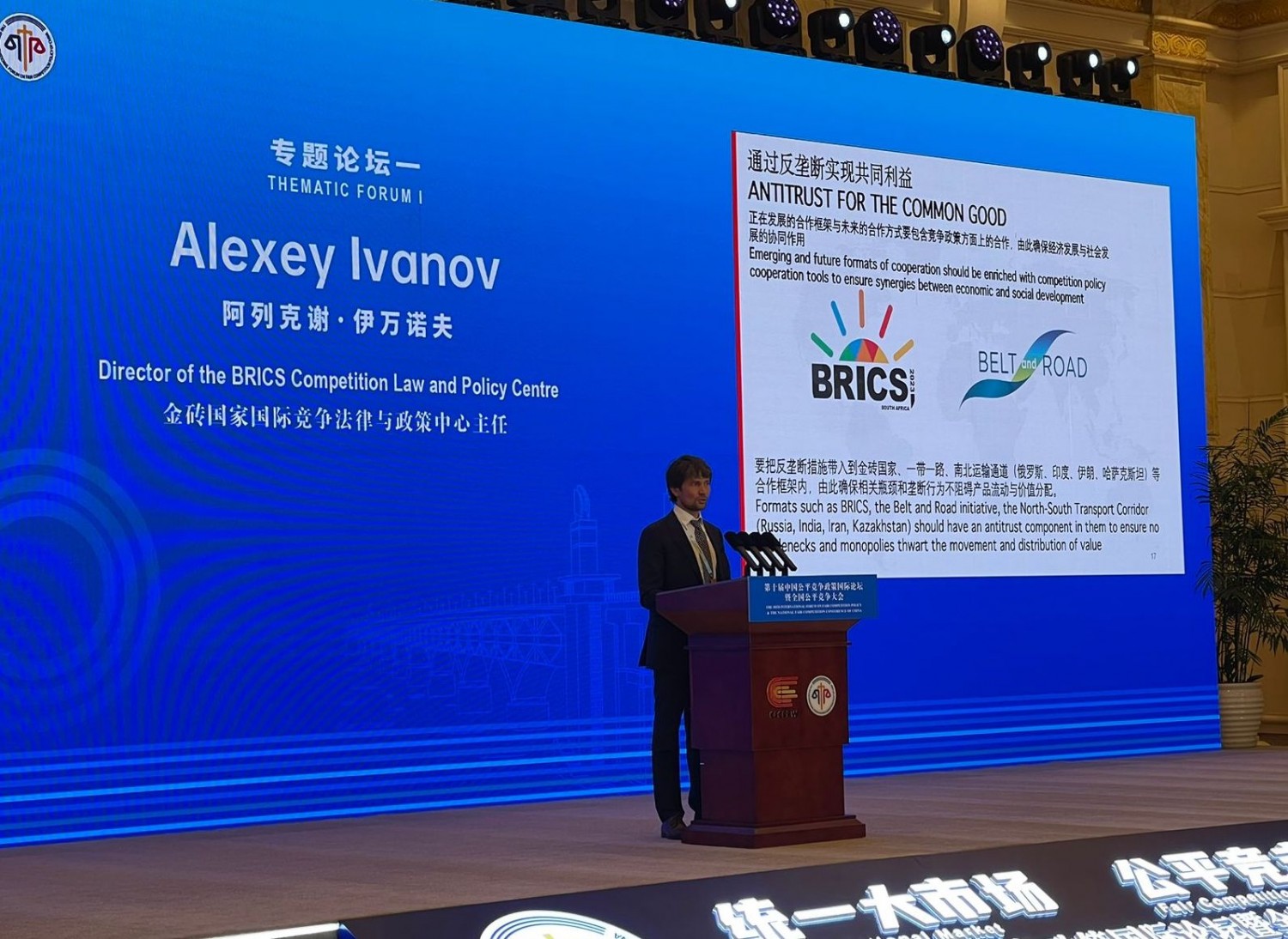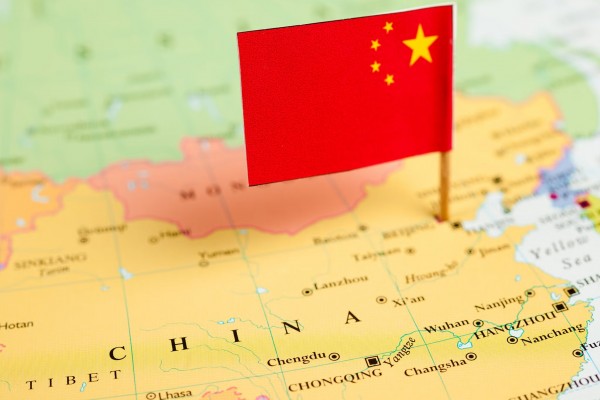On 11-12 September, Nanjing, China hosted the 10th China International Forum on Fair Competition Policy under the joint sponsorship of the State Administration for Market Regulation (SAMR) and the People's Government of Jiangsu Province. Alexey Ivanov, Director of the International BRICS Competition Law and Policy Centre, participated in the forum for the third time as an invited foreign speaker — his previous presentations were held in 2016 and 2017 in Beijing and Shanghai. The event traditionally gathered leading representatives of the global academic community and heads of foreign antitrust authorities, including those from the EU, the US, and Japan.
This year's forum focused on the theme of "Unified National Market and Fair Competition for the Future.” It marked the start of the China Fair Competition Policy Promotion Week, which ran from September 10 to 15.
Xu Kunlin, Governor of Jiangsu Province, said that by supporting fair competition, Jiangsu aims to become one of the world's most attractive and competitive investment destinations and has been named "Province with the Best Business Environment" in China for four consecutive years.
SAMR Director Luo Wen called for improving anti-monopoly enforcement, promoting fair competition policies, strengthening innovation incentives, promoting high-quality economic development and accelerating the construction of a unified national market.

The forum included five thematic sessions, the first of which, entitled "Anti-Monopoly Enforcement and Building a Unified National Market”, was addressed by Alexey Ivanov. The Director of the BRICS Competition Centre outlined two main tasks for regulators operating in the new economy. The first concerns setting the actual goals of antitrust regulation: to promote diversity and social justice, as well as greater sustainability of the economy. There is a need to incorporate sustainability values into antitrust regulation — the BRICS Competition Centre is in the process of finalizing a major report on this topic. The paper will be presented in October in New Delhi at the 8th BRICS International Competition Conference, organized by the Competition Commission of India with the support of competition authorities from all BRICS countries.
In addition, the development of the antitrust track within the framework of various regional economic integration projects is of great importance.
"The work on the antimonopoly track is underway in the EAEU and BRICS, and it is necessary to establish it within the framework of China's One Belt, One Road integration project as well. Antimonopoly regulation should be used to resolve the bottlenecks in regional economic projects,"
Ivanov emphasized.

The One Belt, One Road initiative, introduced in 2013 by the Chinese leadership led by Xi Jinping, aims to stimulate economic prosperity of the countries involved, strengthen cultural exchanges and ties in all fields between different civilizations, and promote peace and sustainable development.
Also on the margins of the forum, the BRICS Center delegation met with representatives of Alibaba, organized with the participation of Jia Kai, Leading Researcher of the BRICS Centere, Associate Professor at the University of Electronic Science and Technology of China (UESTC). During the more than two-hour discussion, China's new system of algorithm registration for digital companies was discussed in detail. Alibaba representatives described the specifics of this process and how the requirement to disclose algorithms affects competition in the digital sector and the company's interaction with the regulator. Thus, Alibaba has established a separate department responsible for ensuring maximum transparency of algorithms and their safety from the point of view of the users’ interests, the state and society. As Alibaba representatives emphasized, the issue of respecting public interests is a key issue for the department and China's antitrust regulators.
In March, Alibaba announced the corporate restructuring — experts explained the importance of its split into 6 units for some aspects of the business (for example, databases will be separated). It was noted that restructuring was a way for the company to adapt to the changing realities of the market and regulatory environment. The impact of such decisions on Alibaba's complex ecosystem is not easy to predict at this stage. The ecoantitrust method, which is being developed by the BRICS Competition Centre and the International Institute for Applied Systems Analysis (IIASA), is designed to predict changes in the ecosystem in the course of its development.
Alibaba representatives (in particular, Guan Xiaoshu, Deputy Director of the Center for Competitive Policy Research of Taobao and Tmall) noted that it is important for digital platforms to keep up with current antitrust policy and comply with antitrust laws. Companies, along with regulators, are studying the impact of the digital economy on competition and related challenges: how to take into account competitive pressure in the form of innovation in the development of their own business strategy, how to take into account potential competition from other industries (cross-industry competition), how to take a new approach to determining market power, etc.
On the Alibaba side, the meeting was attended by Chen Yuefeng, Security Officer of Alibaba Group Algorithm Security Department (AI Security Lab); Wang Zheng, Senior Researcher of Alibaba Research Digital Economy Center (policy research profile); Lu Ping, Senior Algorithm Security Specialist of Alibaba Group Algorithm Security Department. Fu Hongyu, Deputy Director, Digital Economy Research Center, Alibaba Research Institute, and Guan Xiaoshu joined online.
The China International Forum on Fair Competition Policy has been held since 2012 and plays an important role in advancing the competition agenda, exploring issues of streamlining competition and strengthening international cooperation in this area.




